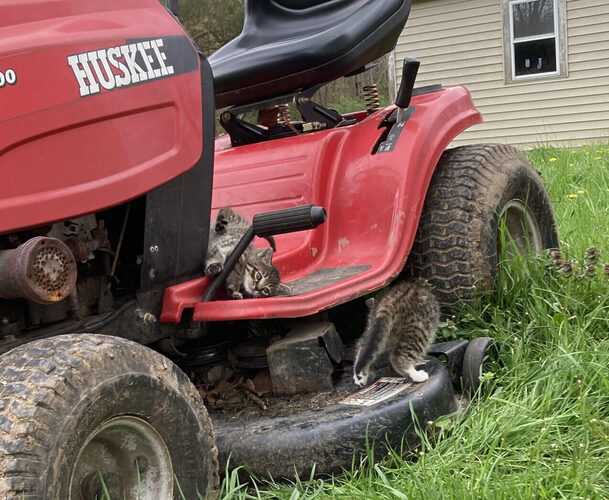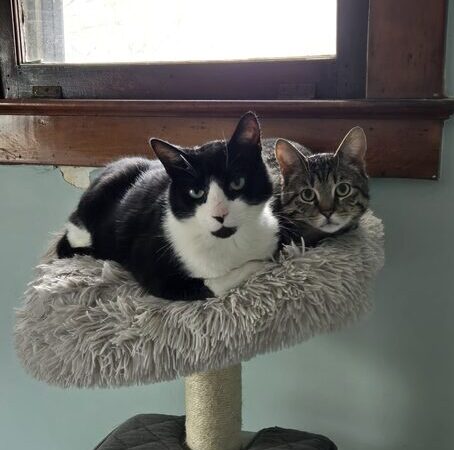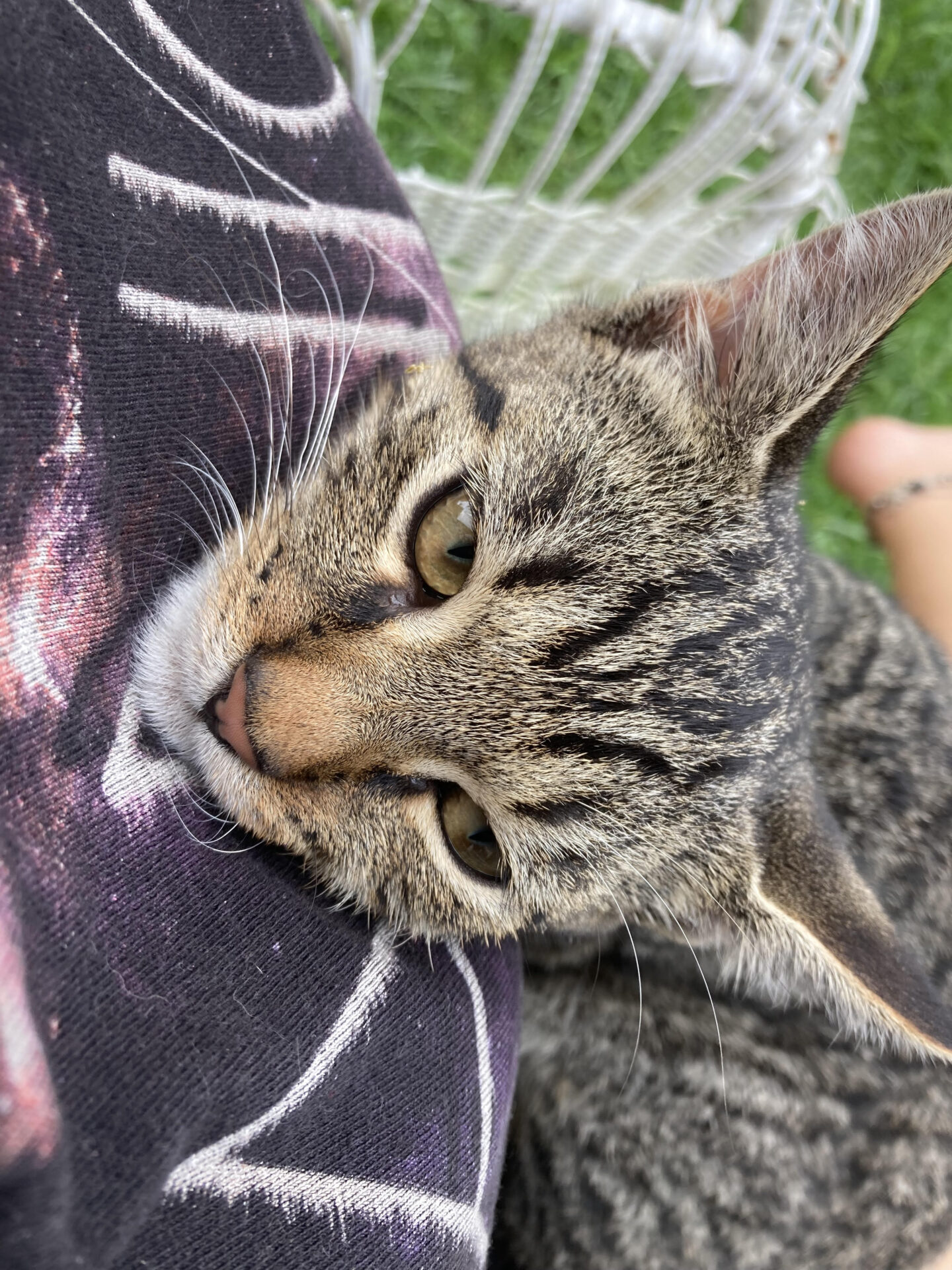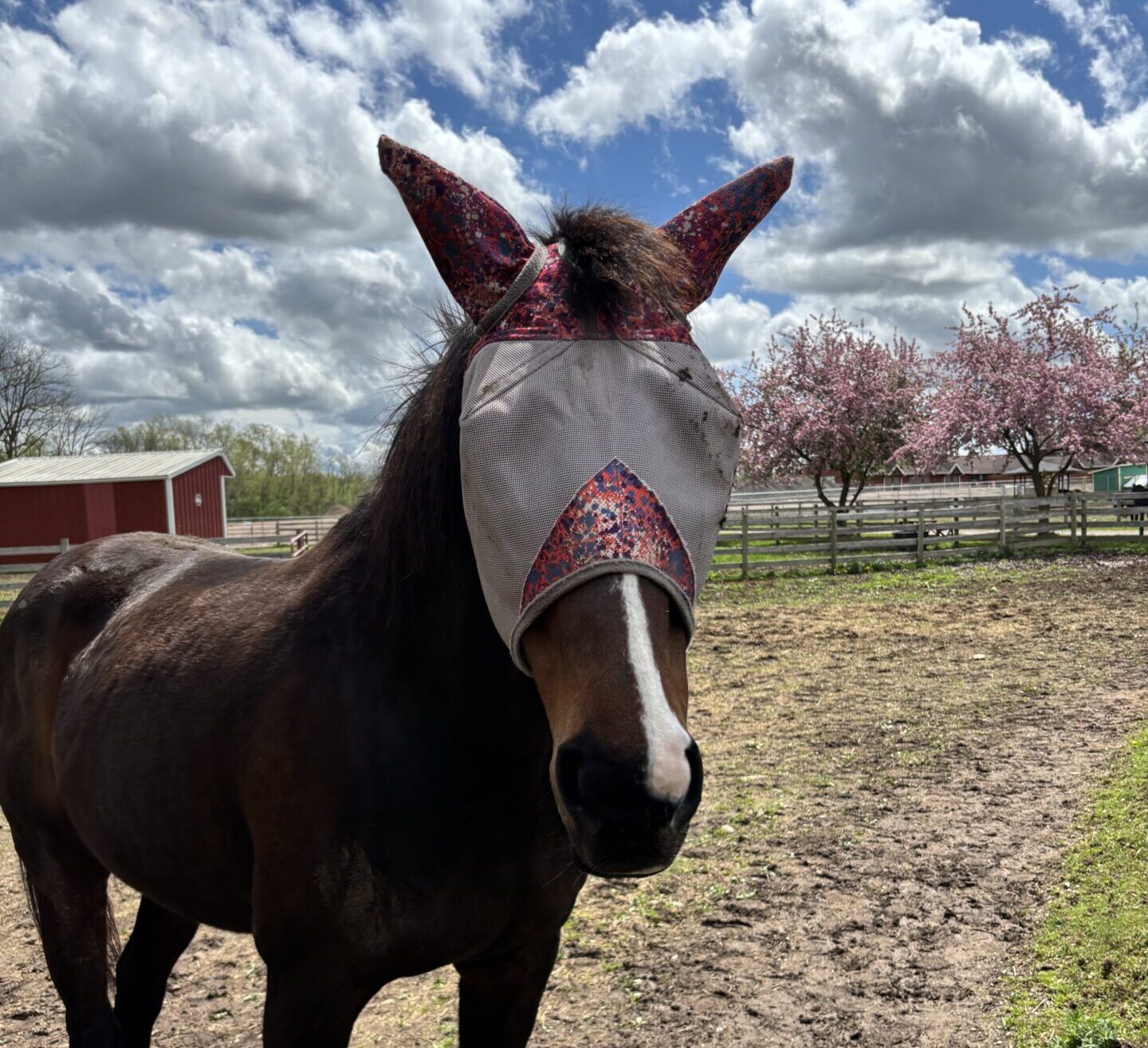Rocket was no stranger to the outdoors. As a community cat, he had spent his life roaming the neighborhood. One of his biggest admirers was Iva, a nearby resident who had watched Rocket grow from a tiny kitten into a spirited young cat. She even had photos of Rocket’s earliest adventures—climbing on her lawn mower with his sibling, under the watchful eye of their mother.

So when Iva noticed an injury near Rocket’s tail, she didn’t hesitate to bring him to Lollypop Farm, where he was evaluated by staff at the Klingenstein Veterinary Clinic and given the care he needed.
Though the cause of Rocket’s injury was unknown, the possibility of a wild animal bite and rabies exposure meant that he had to be placed in quarantine. At Lollypop Farm, every precaution is taken to ensure the safety of animals and people. Rabies is a deadly zoonotic disease, which means it can be transmitted between species, including to humans. Quarantine is necessary in these situations to prevent exposure and spread.
Rocket was placed in quarantine with another cat, Henry, and the two became fast friends. A Lollypop Farm employee then decided to foster both cats while they waited. Iva continued to check in regularly, sending sweet messages and sharing that Rocket had just celebrated his first birthday, as he was born sometime in April.

Rocket and Henry will stay in foster care until they are healed and their quarantine period is over. For now, their foster home is filled with toys, cat trees, and enrichment to keep them both happy and healthy. Rocket gets an amazing amount of confidence from his friend Henry. They wrestle, snuggle, groom each other, and have each other’s company. When they finish their quarantine, they may be put up for adoption as a bonded pair, meaning they should go to a home together.
What is a Community Cat?
“Community Cats” are outdoor, unowned, and free-roaming felines. They may be friendly or feral, young or old, altered or not, healthy or in need of care. Some have caregivers who look out for them, while others live more independently. No matter their situation, every community cat deserves compassion—and when needed, a helping hand.
Rocket is friendly enough that he will be able to be adopted into a loving home once he has completed his veterinary care and quarantine.
How can you help community cats?
-
-
Keep an eye on the cats in your area for any injuries or concerns
-
Provide food, water, and cat shelters in a safe area
-
Contact local rescue groups to help get community cats spayed and neutered, thereby helping control the population
-
Most community cats are used to living outdoors and would become stressed in an indoor environment, so helping keep the population healthy is the best way to help!

-



